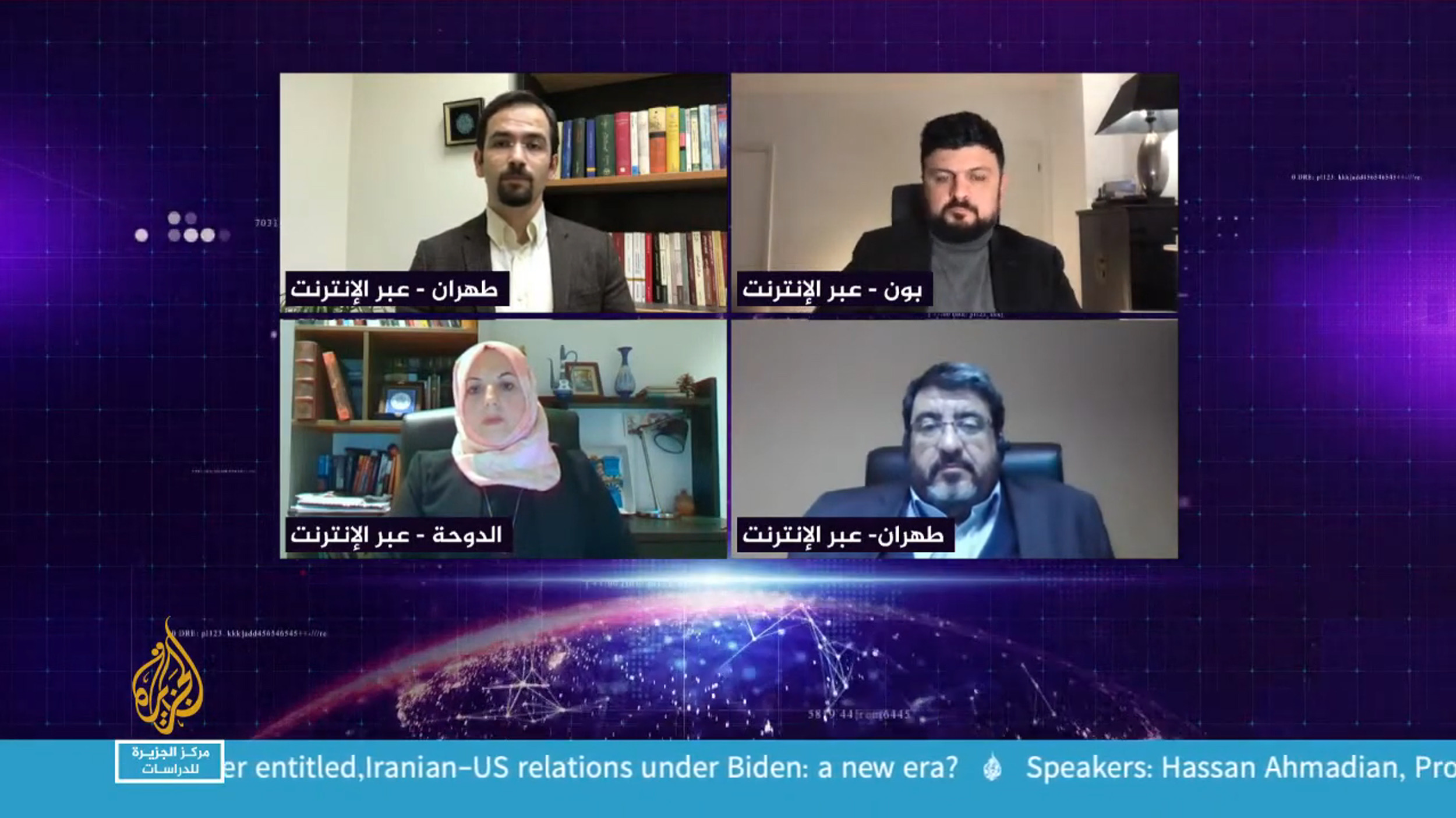
Al Jazeera Centre for Studies and Al Jazeera Mubasher held a webinar on Wednesday, 30 December 2020, under the title, “Iranian-US relations under Biden: a new era?” with the participation of Hassan Ahmadian, Professor of Middle East studies at the University of Tehran; Foad Izadi, Professor of American studies at the University of Tehran; Adnan Tabatabai, Co-founder and CEO of the Center for Applied Research in Partnership with the Orient; and Fatima Alsmadi, Senior Researcher at Al Jazeera Centre for Studies, with Al Jazeera Mubasher presenter Mostafa Ashoor as moderator. The webinar concluded that relations between Iran and the United States will witness relative improvement after the Trump presidency but it will take time for trust between the two parties to be restored.
The speakers expressed their concern about some of the names President-elect Joe Biden chose to be in his administration, arguing that they “are convinced that the continuity of US sanctions on Iran might prove to be fruitful in maintaining US interests in the region.”
The speakers also minimised the potential role of Europe in the improvement of relations between Iran and the United States in the upcoming period, asserting that Europe follows the United States’ lead as it pertains to the Iranian file and cannot take a position independent from Washington’s general orientation towards Iran.
The webinar also touched on the changes that Iran may witness in the near future, especially after the upcoming presidential elections. In this regard, the speakers indicated that the elected Iranian president may be from the fundamentalist revolutionary trend. Therefore, he may not be eager to make concessions in negotiations with the United States because this trend generally believes that the continuation of US sanctions on Iran is an opportunity to reinforce internal capabilities and strengthen independence and self-reliance, especially militarily and economically. Nonetheless, the webinar emphasised that even if a new president from the fundamentalist trend were to come to office, he will not close the door to negotiations with the United States but may establish a new framework for negotiation that may take at least a year. In any case, the Iranian missiles programme – according to the speakers – will not be among the files he will negotiate with the United States over. This holds true for a number of regional files as well with the exception of the Yemeni file that may witness improvement given Iranian influence on the Houthis and Iran’s ability to push them towards political settlement in the upcoming period as Tehran has indicated.
In addition, the webinar predicted that if the fundamentalist trend wins the next presidential elections, it will negatively affect the Gulf region, especially the countries that hurried towards normalisation with Israel. The speakers attributed this to the fact that Tehran views normalisation as a threat to its national security and stressed that its implications will include more security instability in the region in general and the Gulf region in particular.
The discussion also deduced that if relations between Iran and the United States improve, relations between Tehran and Riyadh could then improve as well because the state of relations between the two neighbours are determined by relations between Tehran and Washington.
Moreover, it indicated that the next Israeli elections and the new political leadership or re-election of the current prime minister they will result in will also affect the nature of Iranian-Israeli relations in the upcoming period. All of these are considerations that should be taken into account when evaluating the Iranian-US scene in the near future.
The webinar concluded its discussion by upholding the possibility that Iran and the United States under President-elect Biden will come to partial agreement regarding a number of issues but ruled out the possibility of complete agreement because of the complexity of relations between the two countries and the long periods of continuous conflict since the 1979 revolution.